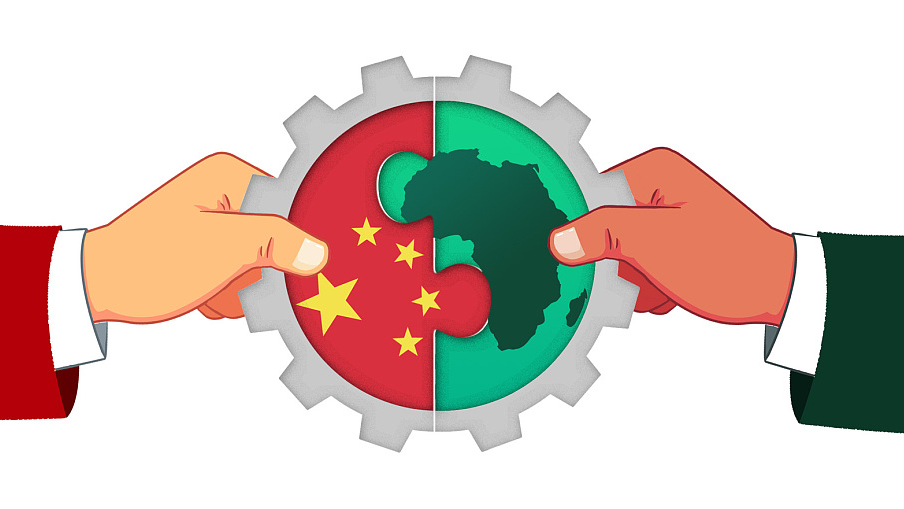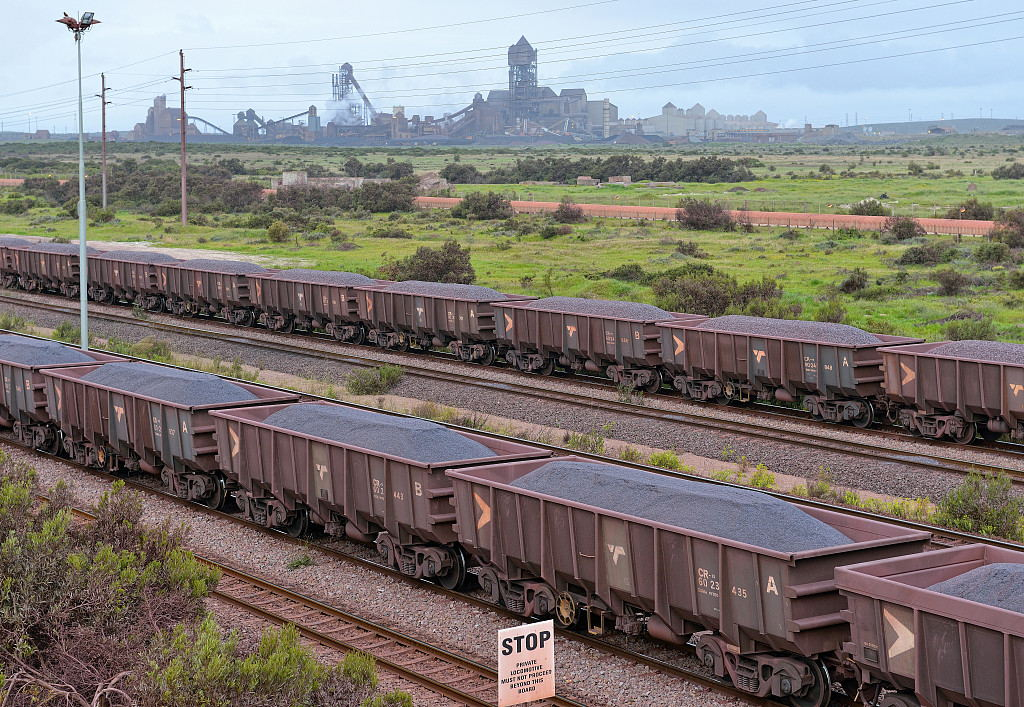
Editor's note: Hamzah Rifaat Hussain is a TV anchor at Indus News in Pakistan, former visiting fellow at the Stimson Center in Washington and former assistant researcher at the Islamabad Policy Research Institute. The article reflects the author's opinions and not necessarily those of CGTN.
Chinese President Xi Jinping called this week for strengthening China-Africa cooperation by coping with risks and challenges for common development. Africa's infrastructural development will gain a massive boost if the present trajectory of cooperation between the two sides continues.
For a continent with immense resources, Africa needs a massive economic boost in 2022 which can only materialize with the swift completion of infrastructural projects that provide a conduit for prosperity and higher standards of living for its local population. In light of this, the continent's cooperation with China is heading in the right direction as joint ventures continue to tap into diverse sections of national economies such as agriculture, networking and technology to promote sustainable economic growth, which has eluded the continent for long. Sustainable growth however is linked with avenues for regional and international connectivity for which multipronged strategies need to be in place.
On cooperation with China, the strategy is definitely multipronged. President Xi called for investing in leadership skills in the southern African region by establishing leadership schools that complements Chinese corporation engaged in completing infrastructural projects in countries such as Tanzania and Nigeria in 2022. The combination of investment in skill sets for a more educated, productive and innovative workforce in Africa with the concomitant construction of projects such as the China Civil Engineering Construction Corporation (CCECC) which sponsored light rail venture in Lagos, Nigeria, can unlock massive dividends for struggling economies across the continent. Both job creation and inclusive growth are urgently needed.
By tapping into existing mechanisms such as the Africa Continental Free Trade Area (AfCFTA), there are excellent prospects for bilateral and multilateral cooperation as AfCFTA expresses an unwavering commitment towards removing trade barriers among member states for collective economic prosperity.
Figures from the General Administration of Customs of China in 2021 reveal how trade between both sides exceeded $250 billion and under AfCFTA investors can potentially tap into the free flow of goods with fewer bottlenecks. This is also made possible with the presence of the Pan-African Payments and Settlement System (PAPS) that allows for greater interaction between Chinese investors and their African counterparts with costs reduced significantly and equaling $5 billion per year. This enables potential benefits for win-win strategies for all countries.

A railway in Cape Town, South Africa. /CFP
A railway in Cape Town, South Africa. /CFP
These prospects, realities and possibilities are unfolding in a deeply polarized global environment with continents such as Africa being neglected or historically exploited to the detriment of the local population. Such environments do however necessitate newer, more comprehensive contracts for African countries to capitalize upon. Chinese corporations have played a key role in this regard with the signing of a $200 million contract for the construction of Royal Apartments in Uganda between the Hunan Construction Engineering Group No. 2 Company and Larose Investments providing much needed investment in property markets in Least Developed Countries (LDCs).
Similarly, to revive agriculture joint initiatives such as the Hunan Construction Engineering Group's contract with Ivory Coast to build processing factories to increasing the capacity of agricultural products gives added impetus for African countries relying on cash crop production for export earnings.
With contracts targeting different sectors in African economies in place, a massive improvement in the livelihoods of citizens suddenly becomes possible. Other sectors such as mobile communications, clean energy, digital economy and smart cities development are equally important. Yao Guimei from the Chinese Academy of Social Sciences says such projects can bring new opportunities for an array of different investors to tap into.
Additionally, collaboration on the first China- Africa Beidou Navigation Satellite System (BDS) in the form of a joint agreement to take advantage of the system in 2021 for Africa's social, economic, and environmental development demonstrates how far China/ Africa cooperation has evolved with focus on reducing poverty, promoting local industries, and protecting local ecosystems from constant, evolving threats.
This, alongside grassroots level engagement of communities provides the best hope for the continent which has been endorsed by the African Union Commission's Director of human resources, science, and technology Mahama Ouedraogo as he considered BDS to be a significant tool in injecting new momentum in local economies and broadening collaboration with China.
Such important developments are often sidelined in Western coverage of Chinese investment peddling allegations of debt traps and resource exploitation. The truth is that Africa's infrastructure will drastically improve due to the unconditional and meaningful cooperation with China which will have a significant impact on the continent's economic future.
(If you want to contribute and have specific expertise, please contact us at opinions@cgtn.com.)

